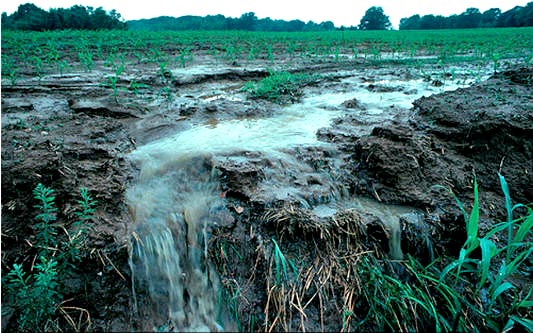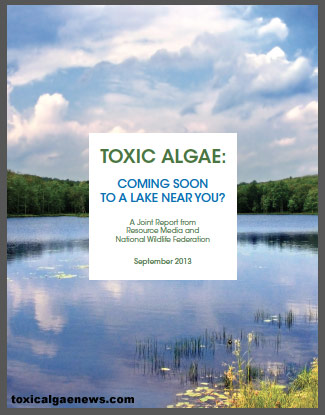Florida's Rainy Summer Spreading Toxic Algae to Florida Waters
Posted September 27, 2013 08:25 am

What causes toxic algae? Sewage, wastewater, chemical
fertilizer and manure from farms that enter waterways.
All spur the growth of algae. Photo: Lynn Betts, NRCS
ST. LUCIE, FL – This summer's unseasonably heavy summer rains are not just spurring the growth of toxic algae in Florida's coastal waters. A new report by the National Wildlife Federation and Resource Media found that at least two of the state's inland waters - the St. Lucie River and Lake Harris - have had public health advisories issued this summer because of algae. These outbreaks killed dozens of dolphins, manatees, birds and fish.
Manley Fuller, president of the Florida Wildlife
Federation, warned that, beyond the impact on wildlife,
the green slime can cost the state millions in
greenbacks from lost tourism.
"If they encounter beach closures or they have public
health notices, tourists are probably less likely to
come back. That's money that's going to go someplace
else," Fuller said.
Scientists attribute the algae to runoff from
industrial agriculture and urban stormwater that is
aggravated by warming waters caused by climate change.
No federal agency tracks lake closures or health
advisories. Fuller said that is one reason the problem
has not gotten national attention - until now.
Currently, Congress is considering legislation that
would fund Everglades restoration, which Fuller pointed
out is necessary to help repair the damages. However, he
said, reports like this emphasize the importance of
regulations to prevent water pollution in the first
place.
"We have to reduce our nutrient discharges into our
waterways, and we have to better be able to store and
treat water," he said.
The report recommended increasing demands that
industrial agriculture employ ways to retain runoff
nutrients on farms and adopt water pollution limits with
regard to phosphorous and nitrogen discharge - two key
ingredients of fertilizer.
Photos and links added by the Observer

